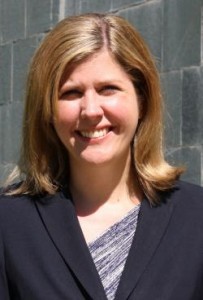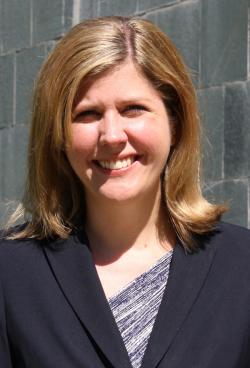 We are deeply saddened by Judge Rodatus’ op-ed on the juvenile code rewrite project and his views about the process that has been used to refine the Child Protection and Public Safety Act, which in its most current form is House Bill 641. His remarks do not reflect the wider community of juvenile court professionals. We appreciate the opportunity to provide some important clarifications and corrections.
We are deeply saddened by Judge Rodatus’ op-ed on the juvenile code rewrite project and his views about the process that has been used to refine the Child Protection and Public Safety Act, which in its most current form is House Bill 641. His remarks do not reflect the wider community of juvenile court professionals. We appreciate the opportunity to provide some important clarifications and corrections.
The Original Proposed Model Code
Judge Rodatus correctly notes that this project began with work of the Young Lawyers Division (YLD) of the State Bar of Georgia on a Proposed Model Code (PMC) for Georgia. However, the circumstances of the PMC were very different from what he describes. Contrary to the judge’s assertion, we have never claimed that the Council of Juvenile Court Judges (CJCJ) as an entity requested that the YLD take on this project. Rather, we have simply offered the historical note that Judge Robin Nash, who was then president of CJCJ, approached the YLD with the suggestion that led to this project.
The assertion that “the PMC was drafted by two out-of state lawyers at the request of well-intentioned people, most of whom have little or no experience in dealing with the abused, neglected, unruly and delinquent children we see everyday” is also incorrect.
There were three reporters who drafted the PMC, not two, and all three are attorneys licensed in Georgia with distinguished resumes of service to the Georgia Bar and in children’s law. Professor Lucy McGough is the only one of the three reporters who lived out of state at the time they were contracted for this project.
She is an Emory Law graduate, a former Emory Law Professor, and was one of the drafters of the original 1971 Georgia juvenile code now under revision. She currently teaches at Louisiana State University where she was instrumental in the drafting of the Louisiana Children’s Code, so she was uniquely qualified for the project.
Soledad McGrath was a YLD member experienced in juvenile law who lived in Georgia when the project began, but accepted a teaching fellowship with Loyola Law School in Chicago in their Civitas Child Law Center toward the end of the project. Judge Rodatus failed to mention the third reporter, the honorable Velma Tilley, Chief Judge of Bartow County Juvenile Court, who is also a former president of CJCJ.
Finally, it was the Juvenile Law Committee of the YLD that hired these reporters and supported their work, and that Committee consists primarily of lawyers who, though young, practice in juvenile courts every day.
It is true that stakeholder input was not a big part of the development of the PMC. This was intentional. In order to create a true model code, based on best practice and social science research, the initial effort was insulated from outside opinion and influence. It was always acknowledged that this ideal model would have to be adapted significantly to reflect realities for Georgia’s children and families, its agencies and courts, and practitioners on the ground before it could be introduced as legislation.
From PMC to Legislation
While the PMC was being drafted, the YLD anticipated the need for outside help to facilitate the intensive vetting that would be required to create a legislative package. JUSTGeorgia, with its lead partners of the Barton Child Law and Policy Center, Georgia Appleseed and Voices for Georgia’s Children, was created in part to provide this help. The work was transitioned through partnership with the YLD. It was not hijacked.
The first thing JUSTGeorgia did was to gather feedback on exactly the types of on-the-ground issues that Judge Rodatus identifies. In fact, CJCJ and many individual judges provided extensive feedback, much of which was incorporated in the original drafting of the bill. Notably, more than 60 sections of the PMC were revised to incorporate judicial feedback. Further refinements since that initial drafting have also reflected feedback from judges, leading the CJCJ representatives at the recent House Judiciary hearing to comment, “Almost everything that we have asked for has been incorporated.” The same is true for other stakeholder groups as well.
Once the legislation was introduced, a series of legislative hearings held in the state Senate led to additional feedback from many interested parties. The stakeholder process that Judge Rodatus lambasts developed at the request of the bill’s legislative sponsors as a forum through which people who had expressed differing views could work together to achieve compromise and agreement wherever possible. The two lead sponsors, Chairman Bill Hamrick of the Senate Judiciary Committee, and Chairman Wendell Willard of the House Judiciary Committee, have praised this inclusive process and its positive results, and a wide range of stakeholders, including all the groups Judge Rodatus lists as “marginalized,” have been actively engaged and echo this praise.
Respect for the process was dramatically demonstrated at the House Judiciary hearing on August 25 of this year. Twelve different groups presented their views on the bill, and all mentioned the inclusiveness of the process and stressed that they were still at the table working out their remaining concerns and were confident they would be addressed. The comments of DJJ Commissioner Amy Howell are representative: “The process that DJJ has participated in has been a good one; one in which that we feel our opinions and our feedback are being incorporated, where there’s healthy discussion and everybody appears to be working together.”
Conclusion
The Child Protection and Public Safety Act is a unique bill that reflects years of high quality research on what works, balanced by input from stakeholders who experience the system every day. The process that has been built works well, and is already serving as a model for other projects. The Act is still being refined through the thoughtful feedback and cooperation of experts, practitioners, government agencies and affected youth. JUSTGeorgia is committed to openness, transparency, and getting it right, so that Georgia can achieve better outcomes for her communities, children and families.
Opinions vary on the size and scope Georgia's juvenile code rewrite should undergo. Read Juvenile Court Judge Robert Rodatus' interpretation: Proposed Revision of Georgia Juvenile Code is Flawed.
